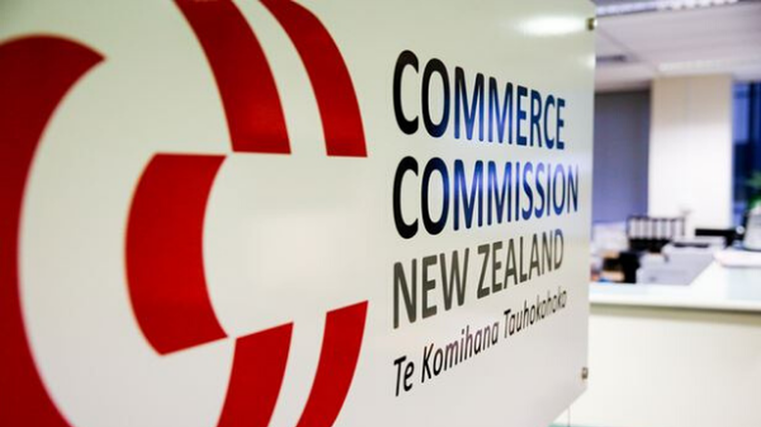Cheating the system

New Zealand’s first criminal prosecution for cartel conduct has ended at the high court in Auckland with the sentencing of a second company involved in the bid-rigging of public-roading contracts.
The sentencing follows that of Munesh Kumar and his construction company, MaxBuild Ltd, in December 2025.
Kumar was earlier given six months’ community detention and 200 hours of community work, while MaxBuild was ordered to pay a $500,000 fine. He admitted he instigated and was the only direct beneficiary of the conduct.
At this week’s sentencing, Justice Sally Fitzgerald determined a fine of $595,000 would be appropriate for the second company involved, which has interim name suppression. But due to its inability to afford such an amount, it received a $30,000 fine, which was all it could pay.
The penalty took several factors into consideration, including that the business was no longer actively trading and was in a negative financial position.
During sentencing on October 23, Justice Fitzgerald described cartel conduct, in this case in the form of bid-rigging, as inherently deceptive, hidden from the customer and difficult to detect.
While it was right parties that initiate and benefit from the conduct should receive higher penalties, the second company took “active steps in the collusive behaviour”. She added: “But for them, the conduct could not have taken place.”
While the second company involved didn’t directly benefit from the conduct, submitting bids did allow it to remain in the picture for future work from the procurer.
Dr John Small, chairman of the Commerce Commission, says the historic case sets a precedent and reinforces that the regulator will go after cartels and see they are punished.
He adds: “Cartel detection and enforcement are a priority, and we are particularly concerned when we see conduct that targets taxpayer-funded projects. When we suspect businesses and individuals cheating the system by committing these crimes, we will take action against the conspirators.”
The proceedings follow an investigation into the alleged bid-rigging of contracts commissioned by the NZTA for its Northern Corridor Improvement Project.
This covered the area of SH18 between Albany Highway and Constellation Interchange, and SH1 between Upper Harbour Highway and Greville Road. The busway component of the works extended further north on SH1 to Albany Bus Station. Also involved was Auckland Transport’s refurbishment of Middlemore Bridge.
While convictions send a strong deterrence message, Small says the commission remains committed to prevention. “If a competitor asks you to put in a fake bid on a project, say no. It’s illegal, could result in jail time and can cost taxpayers.
“We have continued our education outreach work with construction businesses, big and small, to reduce the risk that cartel conduct occurs.”
Businesses or individuals that want to report cartel conduct can do so via the regulator’s anonymous reporting tool or by making a leniency application.
Commission’s investigation
The investigation, which began in April 2022, was triggered when a spreadsheet with pricing information was inadvertently sent by an employee of the second company involved in the conduct to the joint venture overseeing the Northern Corridor Improvement Project on behalf of the NZTA.
The employee was acting under the instruction of his boss, had attended meetings with Maxbuild’s Munesh Kumar and knew of the plan to rig the tender bids.
The spreadsheet contained references to MaxBuild’s prices for the tender, as well as meetings between MaxBuild and the second company involved in the conduct.
In May 2022, after learning of the spreadsheet, the regulator executed six early-morning search warrants simultaneously at two commercial and four residential properties. This operation involved 40 commission staff, police officers and specialised digital forensic investigators.
During the searches, the commission collected extensive hard copy and digital evidence, including emails, telecommunications records, photographs, text messages and pricing documents. That evidence revealed Auckland Transport’s Middlemore Bridge was also subject to cartel conduct.
Numerous interviews were conducted with both parties and other witnesses. These allowed the regulator to construct a detailed timeline showing when and how the parties met to collude, and how documents were created or modified using competitor pricing.
Small says part of the ongoing work of the commission’s cartels team is educating procurers about bid-rigging. Cover-pricing is an issue it is detecting more of and is committed to stamping out.
The legal stuff
A cartel is when two or more businesses agree not to compete with each other. Such conduct can take many forms including price-fixing, sharing markets, rigging bids or restricting the output of goods and services.
Because cartel members make more profit than they would if they competed fairly, goods and services become more expensive, consumers end up with fewer choices, and quality and service levels are likely to deteriorate.
Bid-rigging or collusive tendering is when there’s an agreement about who should win a tender or have an unfair advantage in the process. This may involve potential bidders not bidding to support the proposed winner or bidders agreeing the prices each party will bid. This often occurs in the form of cover pricing.
Cover pricing is when one or more parties submits a tender bid or bids at an inflated price with a view to increasing the prospects that another designated company wins it. Such an agreement prevents open and effective competition. It means procurers are unlikely to achieve best value for money for their business, customers and, in some cases, taxpayers.
Section 30 of the Commerce Act prohibits any person entering a contract or arrangement, or arriving at an understanding, that contains a cartel provision. That’s a provision in an agreement between competitors that has the purpose, effect or likely effect of fixing prices, restricting output or allocating markets.
An agreement to restrict output or allocate markets is illegal regardless of whether the agreement affects price. These types of agreements – in addition to price-fixing – are deemed to substantially lessen competition. Since April 8, 2021, cartel conduct has been punishable with a term of imprisonment of up to seven years as well as civil pecuniary penalties.





